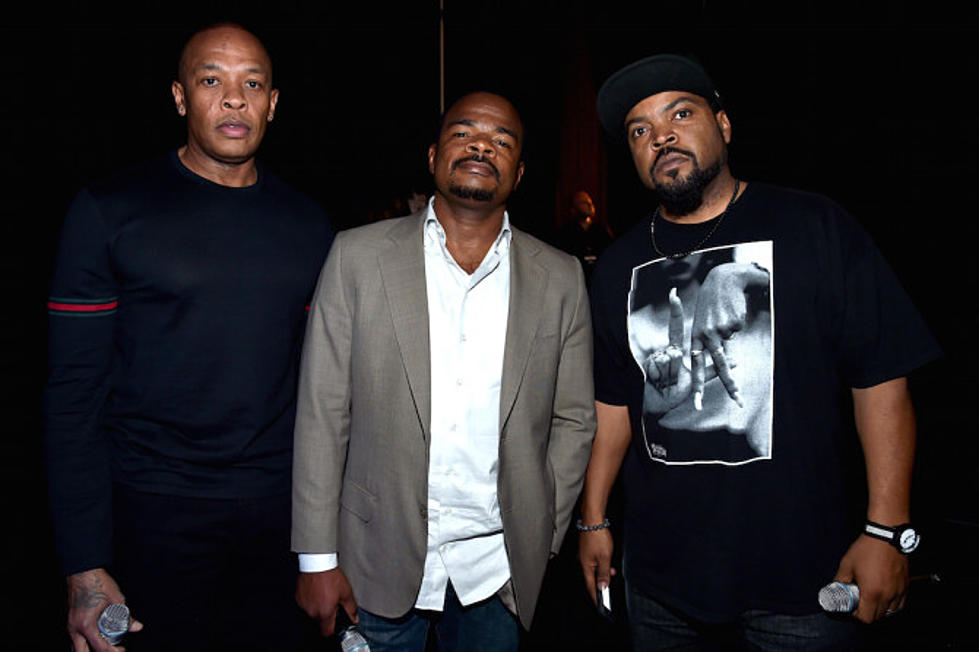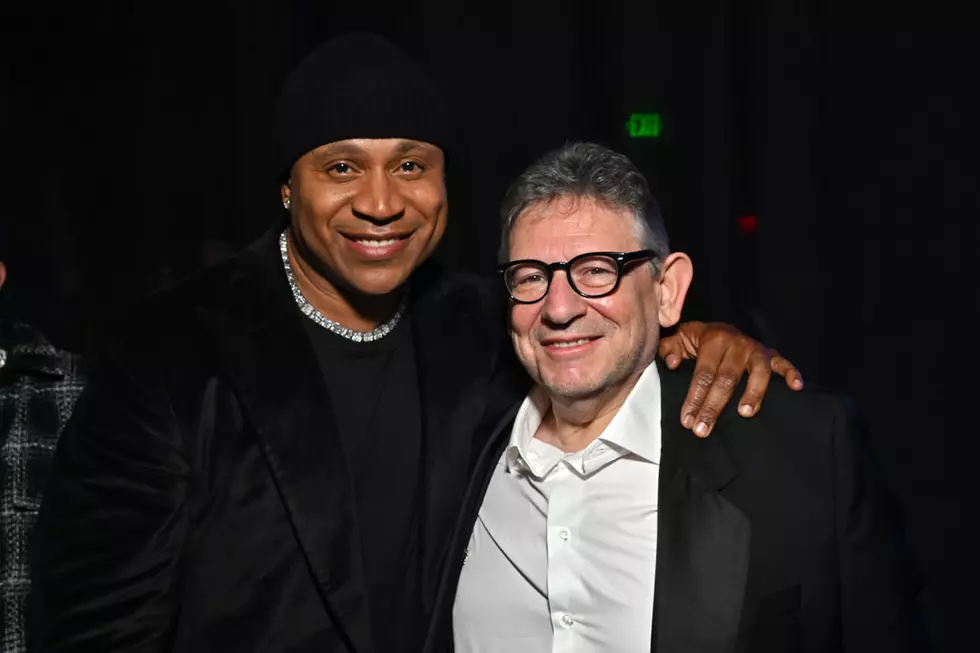
Director F. Gary Gray Hopes ‘Straight Outta Compton’ Sparks a Change in Hip-Hop
As the man who partnered with Ice Cube to craft one of the best comedies of the 21st century, Friday, it was only right that F. Gary Gray link with Cube again to create another film, the N.W.A biopic Straight Outta Compton. Discreetly on board since 2011, Gray and the famed rapper set out this time not to just tell the story of the hoods across America, but to chronicle the personal journey that introduced Dr. Dre, Ice Cube, Eazy-E, MC Ren and DJ Yella to the world as N.W.A.
It took 20 years and plenty of different roads and projects to get to this biopic, and now that it's done and due to hit theaters August 14, the esteemed director—who bore the weight of crafting one of the most anticipated biopics in hip-hop—recently sat down to retrace the new film's journey with XXL. From talks of the difficult casting process to sticking to the biopic's theme of freedom of speech, Gray assures the immense pressure has made a hell of a diamond. —Miranda J.
XXL: I know the public got the news about the film within the last year, but I’m pretty sure you were on board before then. I mean, you and Ice Cube have had a relationship since Friday. So how long have you been working on the film?
F. Gary Gray: I’ve been working on the film for four years. I’ve been on board since 2011.
Was the N.W.A. biopic ever mentioned on the set of Friday? Did Cube ever say to you, "You’re going to direct my biopic one day?"
[Laughs] That’s a good question. No, we were just focused on Friday at the time. Sometimes when you’re in the midst of making history, you don’t even think about it like that. You just hope that whatever you’re doing at the time is good and everybody sees it in the way that you intended it. And that it’s fun and you’re having fun. But nah, we didn’t talk about those things.
What would you say was the most challenging part of the production process for Straight Outta Compton?
Well, there were two things. One, I’d say finding the group and casting. Then once we got the cut together, [establishing] what we were going to keep in the movie because it was so much stuff. I wanted to keep it all but we couldn’t, we have to narrow it down. Trimming the movie was hard as well.
Was any role particularly tougher to cast than another?
Every character had its share of challenges. Cube and Dre are still around, in the forefront of the culture with Beats, Apple, Ride Along and all these great movies Cube is doing. It’s tough because people have their sense of what they want to see. Dre is really private, so just making sure my actor had the access to Dre—and he gave it to him—but just making sure he had that access to create a real guy, not mimic what you think Dr. Dre is or who you think he is, that was part of it for Dre. I just wanted it to feel truthful, authentic and honest. Finding guys with street credibility and finding guys who you believe could rap on stage. Just finding guys from the streets of Los Angeles. All these things were real challenging. Then also trying to make sure they didn’t all blend into each other. Just make sure they felt like individuals and not just five rap guys from L.A. that dress similar but don’t feel the same and sound the same. That was one of the challenges; to make sure they were all characters that we could identify with. Just making sure they stuck out in their own way.
I really thought O’Shea Jackson Jr. did a magnificent job playing his father, but I’m curious because Eazy-E’s son, Lil Eazy, had expressed that he wanted to play his own father but didn’t get the chance. Did you have any thoughts on that?
I think Lil Eazy is happy with our choice that we made with Jason. They met up and they talked. They talked about the role. I think he’s happy with what he saw. It’s not like we didn’t give him the opportunity to audition and things like that. All these roles are really hard. It’s one thing to be authentic—he’s truly authentic and from the streets—but you have to be able to carry a movie from top to bottom. That requires a lot of training. O’Shea went through two years of training and acting coaches and call backs. He didn’t get the role until the last minute. He wasn’t given the role, he had to earn the role. He actually had to work the hardest out of all the actors that were cast to get that role. I wasn’t going to hand him that role, nor was Cube. We know he had a likeness that I think is positive, but that wasn’t my priority. My priority was, can you perform? Acting is very hard; it’s a hard craft. You can be from the streets and have a lot of credibility in that world but to step up and deliver that type of performance on screen, it’s extremely hard to do.
One thing to me that was delivered very well in the film were the scenes centered on police brutality. That represents the core of N.W.A and it was genius how they were incorporated. It’s funny how even now, the timing couldn’t be better for that.
Well, all those scenes were designed, developed and understood well before this wave of media surrounding police brutality was even a thing. It’s unfortunate that’s even the case. I wish I could say, "Well, this is history. It’s old school hip-hop. It’s all the stuff that happened in and around N.W.A." But it’s not. The more things change, the more they stay the same, unfortunately. But I’m optimistic, I really am. I think that N.W.A kind of started shining the light, at least in that era, on police culture and how unfair it can be sometimes. They’re doing it now in the news, people are picking up their phones and video cameras, so I’m optimistic that there’s going to be a change of images that we’re seeing. It just has to be.
To me, I also feel like it’s going to spark a change in hip-hop. I feel like they’re going to watch the movie and feel a way. Maybe start using their music to stand up for themselves...
And social issues, stuff like that.
Yeah.
I hope so. Art inspires art; that’s true and has been true forever. When other hip-hop artists see this movie and see that they had the courage to stand up, not only against record companies, bad business practices and people from the streets, but stand for themselves and against the excessive force from the police. Hopefully it does spark a shift in how people express themselves. But I’m careful about what I mean. I’m careful about that, because also this movie is about freedom of speech. You should be able to talk about whatever you want to talk about, but if this kind of injects a level of consciousness in other artists, then great. That’s positive as well.
More From XXL









